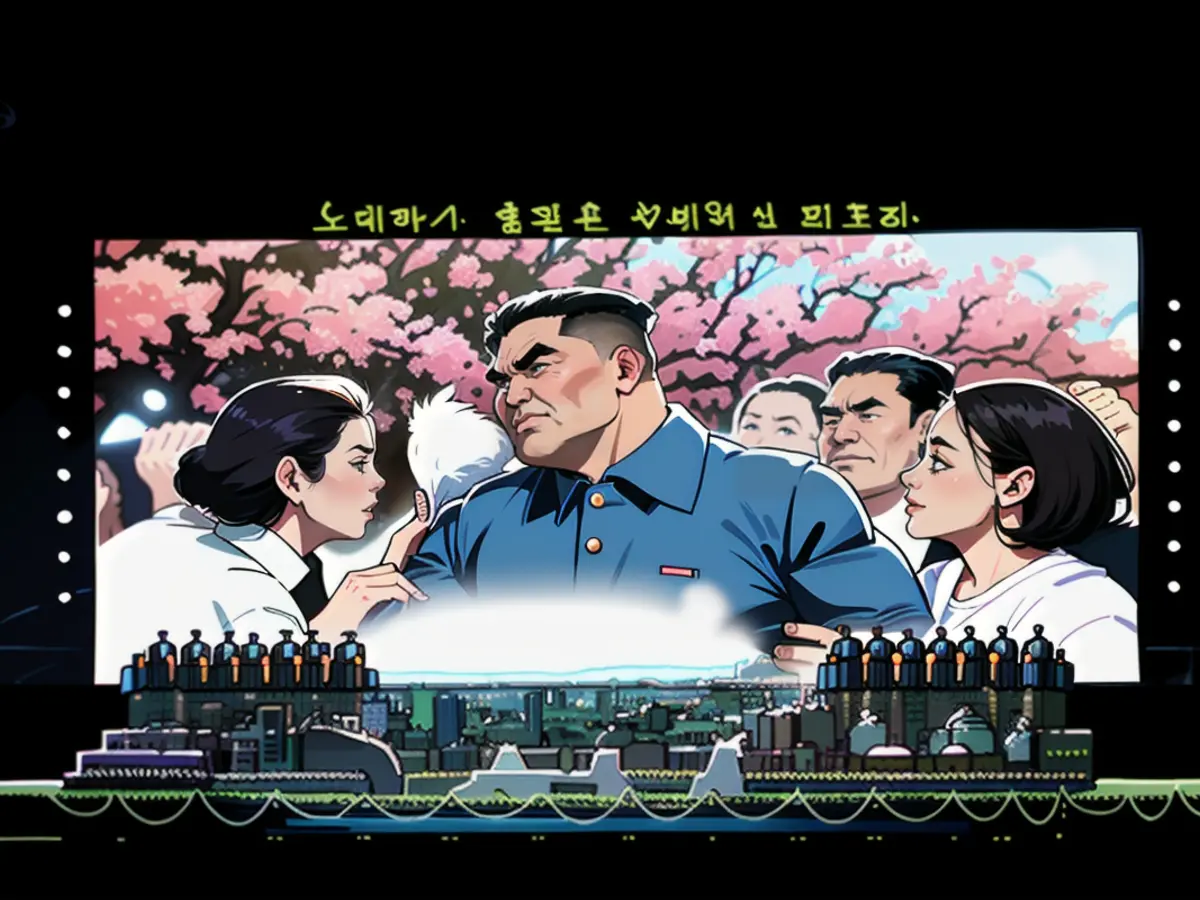South Korea disallows a hit track that gained popularity on TikTok.
Seoul's media regulator has announced that it's restricting access to versions of "Friendly Father," a cheerful propagandistic song that has gained popularity on social media.
The song premiered in April during a nighttime event celebrating the completion of a housing project in Pyongyang, according to the North Korean state-run Korean Central News Agency. Its lyrics celebrate Kim, the third-generation leader of one of the world's most authoritarian nations, as a "great leader and a friendly parent." The accompanying music video depicts North Koreans passionately singing about how Kim cares for them with affection.
Although North Korean propaganda isn't unusual, the twist this time is that "Friendly Father" made its way onto TikTok, which is owned by the Chinese internet giant ByteDance. The song virally spread after TikTok creators worldwide used the music to make their own edits of the video, adding dances and lighthearted captions to the one-minute clips on the platform. These videos garnered more than 2 million views.
However, it's not necessarily a propaganda success for Pyongyang.
"This isn't Gen Z professing allegiance to the regime," said Alexandra Leonzini, a scholar from Cambridge University studying North Korean music. "They're making fun of the regime, not with the regime."
Despite this, South Korean security authorities have cracked down on the parodies. The Korea Communications Standards Commission has blocked 29 videos featuring the song, following a request from Seoul's National Intelligence Service.
"The video is typical content related to psychological warfare against South Korea because it was posted on a channel aimed at connecting with the outside world and primarily focused on one-sidedly idolizing and glorifying Kim," the regulator stated.
The ban wasn't unexpected, as South Korea's National Security Act prohibits access to North Korean government websites and media, reducing exposure to Kim's authoritarian regime and penalizing behaviors that support its nuclear-armed neighbor.
Over 90% of North Korea's propaganda songs glorify their leader, and "Friendly Father" is no different. But its enhanced production values could indicate a new propaganda strategy for the country.
"North Korea's music videos used to portray nature and scenery similar to something you'd see at a karaoke night with subtitles," Ha Seung-hee, a visiting professor of North Korean studies at Dongguk University, explained. "But now, it's changed."
"Friendly Father" seems to have used better choreography and video editing than previous North Korean songs.
"North Korea didn't plan for it, but whether it was the algorithm or something else, the video attracted attention, and once Pyongyang realizes it's effective, it might produce new content in this manner," said Ha.
North and South Korea have been isolated from each other since the Korean War in 1953 ended in an armistice. Even though the two governments both strive for eventual reunification, they still view each other as hostile. Millions of North Koreans live in impoverished conditions under a totalitarian dictatorship that has lasted for more than seven decades and spanned three generations of the Kim family. The regime controls everything from food rations to education and jobs, often forcing people into grueling work camps.

Read also:
- This will change in December
- Dikes withstand water masses so far - Scholz holds out the prospect of help
- Fireworks and parties ring in 2024 - turn of the year overshadowed by conflicts
- Attacks on ships in the Red Sea: shipping companies avoid important trade route
The song's viral spread on TikTok, a platform owned by the Chinese internet giant ByteDance, has attracted attention beyond Asia, highlighting the global reach of social media. Despite the ban, the song's success on TikTok shows the potential of North Korean propaganda to circumvent traditional boundaries and reach global audiences.
Source: edition.cnn.com







